Toft Point
A Biodiversity
hotspot
Toft Point is a refuge for native plants and a variety of birds, fish and mammals.
Recognized by the National Park Service as a National Natural Landmark and chosen as a Ramsar Wetland of International Importance in 2015, this 743-acre site has a rich history. Designated a State Natural Area in 1967, it features extensive stands of hard-stemmed bulrush growing in one to four feet of water, providing cover and spawning sites for various fish. The area is home to over 440 vascular plant species and one of the state's most diverse bryophyte (mosses and liverworts) floras. Several orchid species and many rare plants find refuge here. Toft Point, along with the nearby Ridges Sanctuary, is a haven for area-sensitive bird species, including 17 types of nesting warblers.
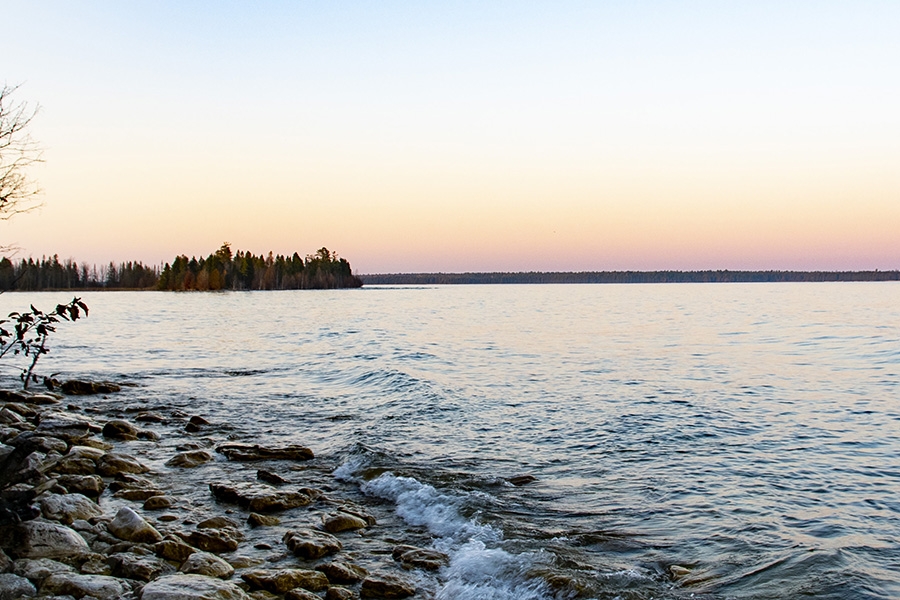
Public Access
From The Ridges Nature Center on Hwy 57 in Bailey's Harbor, proceed east along Ridges Road for approximately 1.4 miles. The main entrance to the Toft Point Natural Area will be on your left. The address is 1982 Ridges Rd, Baileys Harbor, WI 54202.
Parking
Parking is very limited here so if the lot is full, please visit another time. If you are meeting others, please carpool from Baileys Harbor Ridges County Park at 2301 Ridges Rd or Baileys Harbor Town Hall at 2392 County F, as this will help minimize visitor impact to the site.
Hiking
Hiking is allowed, but keep in mind his is a pristine and fragile area with rare plants and biota. Because of this, please do not bring dogs or other pets, drive or park beyond the designated parking area, wander outside the trail, camp/picnic, smoke or have a campfire or bike.
Hunting
Using archery and guns to hunt for deer is allowed with permission only.
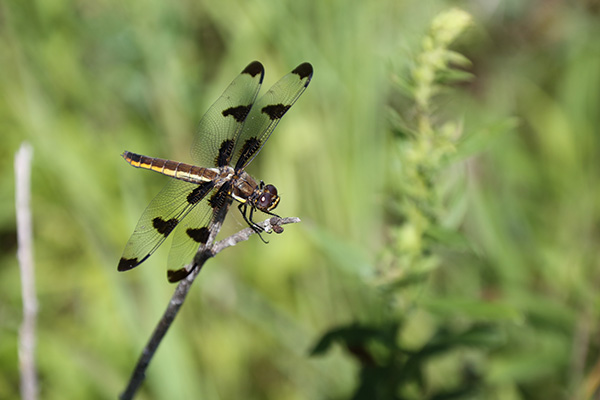
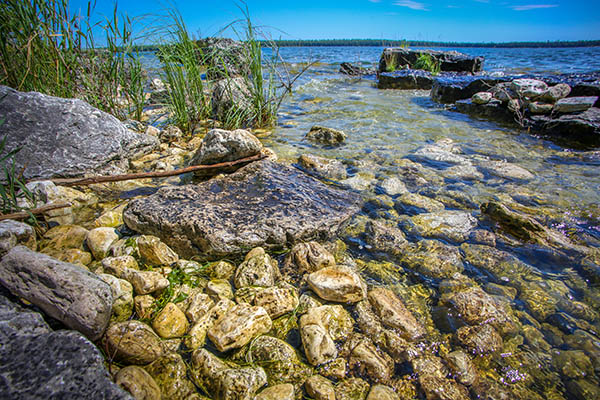
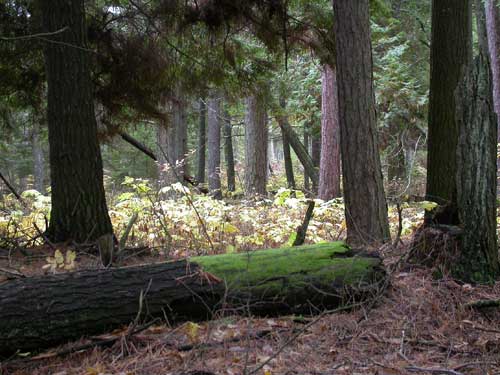
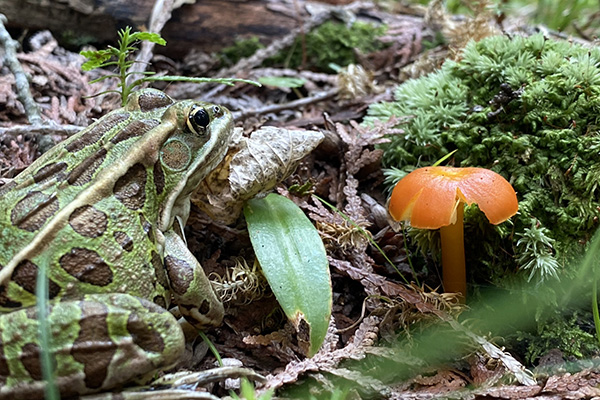
Cobble Beaches to
Rich Forests
Wonders of nature abound at Toft Point.
Bordered on the north by Moonlight Bay, and on the south by Baileys Harbor, there are more than two miles of Lake Michigan shoreline, with areas of wave-cut dolomite outcrops. Stretches of limestone cobble beach, mixed with marly soil, are exposed during periods of low lake levels. The eastern shoreline consists of a narrow strip of relict boreal forest dominated by balsam fir and white spruce, while the peninsula is wooded with a mesic forest of sugar maple, yellow birch, hemlock, balsam fir, and scattered white pine. To the north, along Moonlight Bay, is an extensive calcareous wetland complex that grades into shrub-carr and wet-mesic forest dominated by white cedar with occasional paper birch and black ash. Pockets of tamarack swamp and alder thicket are embedded in the wetland.
A Storied History
The site is named for Kersten Toft, who received the land as compensation for his work at the limestone quarry, previously located on this site. Remaining on site is an historic kiln, which is the State's best intact example of the early circular kilns that once dotted parts of the Niagara Escarpment. The natural area also hosts remnant structures of the summer resort that was ran between 1920 and the early 1970s. The structures, which are maintained by the Friends of Toft Point, include an ice house, four cottages, a boat house and barn. A flag pole stands near the foundation of the former summer kitchen that has been torn down. The open meadow surrounding the former summer kitchen also hosts a plaque and a trail dedicated in Roy Lukes's memory, a beloved naturalist and dear friend of Emma Toft.
For additional history, we recommend reading Toft Point: A Legacy of People and Pines, by Roy Lukes.
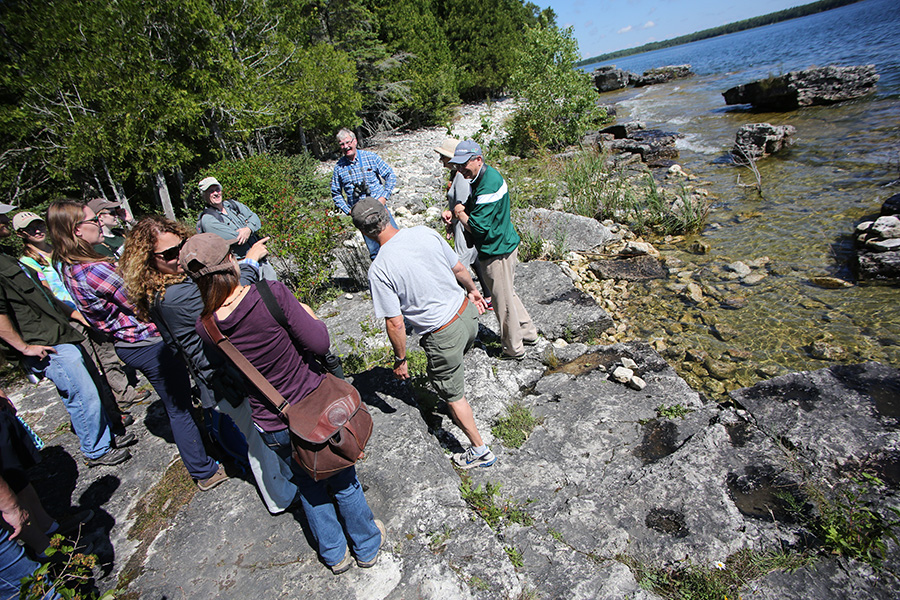
A Living
Laboratory
Providing habitat and promoting ecological processes.
Research here guides policies that protect our environment. This natural area is also vital to educational programming, serving as a living laboratory not only for biological sciences but also for art, English, physical education and more. UW-Green Bay's natural areas are essential for student and faculty research.
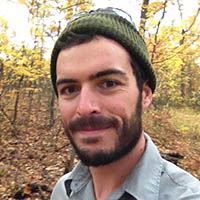
Meet Your Guide
Meet Andrew LaPlant, UW-Green Bay alum and Natural Areas Manager. In addition to leading ecological restoration efforts, he also facilitates outdoor classroom experiences for students. If you have questions about Toft Point, he can help!